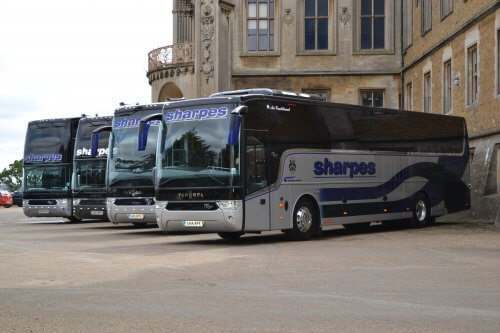 Like every coach and bus operator, the pandemic has brought Sharpes of Nottingham its fair share of challenges. But thanks to an appetite for diversification and a helping hand from a certain chocolate manufacturer, the family-run business is well positioned for the future, reports Peter Jackson
Like every coach and bus operator, the pandemic has brought Sharpes of Nottingham its fair share of challenges. But thanks to an appetite for diversification and a helping hand from a certain chocolate manufacturer, the family-run business is well positioned for the future, reports Peter Jackson
Lots of unusual and bizarre things have happened over the last year-and-a-bit, some much less positive than others. But even something as wretched as the coronavirus pandemic can, in fact, do the odd bit of good.
Cadbury is an official partner of Notts County F.C., Sharpes’ local team, and is committed to supporting local businesses, community projects and charitable campaigns as a core part of the partnership. This partnership helped Sharpes by raising the firm’s profile, with the operator being made shirt sponsors and pitch side advertising being donated to the firm. “Jason Turner, who’s the CEO of Notts County, called me and said, ‘this is going to be the weirdest phone call we’ve ever had – how would you like to be our home shirt sponsor for the next two to three seasons? And it won’t cost you a penny!’” recalled James Sharpe, Operations Director at Sharpes of Nottingham.
[…]
By subscribing you will benefit from:
- Operator & Supplier Profiles
- Face-to-Face Interviews
- Latest News
- Test Drives and Reviews
- Legal Updates
- Route Focus
- Industry Insider Opinions
- Passenger Perspective
- Vehicle Launches
- and much more!


